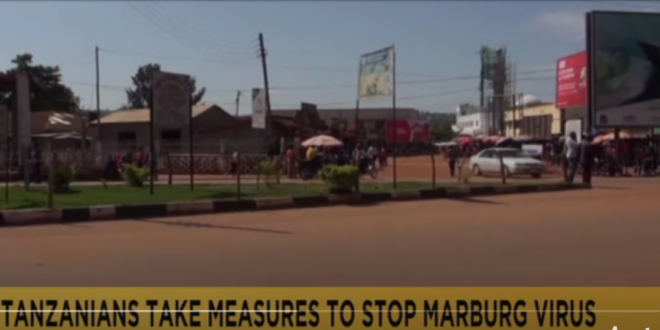Muhamad Yehia
A suspected outbreak of the deadly Marburg disease in northwestern Tanzania has the country and its neighbours on edge.
At least nine possible cases of the Ebola-like virus have been reported since the weekend, of which eight of those infected have died.
Residents in the remote region are adapting their behaviour as a result of the news.
“We have refrained from greeting each other by shaking hands, as was the custom in the past,” said local man, Finton Ishengoma.
“Instead, we greet from a distance while continuing to follow the guidance of health experts on how to protect ourselves from this disease.”
News of the suspected cases came weeks after an outbreak of the disease in neighbouring Rwanda was declared over.
The World Health Organization (WHO) said on Tuesday it was waiting for the results of samples from two patients that were sent for testing to confirm the outbreak.
Marburg has a fatality rate of as high as 88 per cent.
Contacts of those infected, which worryingly includes healthcare workers, have been identified and are being followed up.
“We would expect further cases in coming days as disease surveillance improves,” said WHO chief Tedros Adhanom Ghebreyesus in a statement.
The organisation said its risk assessment for the suspected outbreak is high at national and regional levels but low globally.
Like Ebola, the Marburg virus originates in fruit bats.
It spreads between people through close contact with the bodily fluids of infected individuals or with surfaces, such as contaminated bed sheets.
Symptoms include fever, muscle pains, diarrhoea, vomiting, and in some cases death from extreme blood loss.
There is no authorised vaccine or treatment for Marburg.
 موقع وجه أفريقيا موقع وجه أفريقيا هو موقع مهتم بمتابعة التطورات في القارة الأفريقية
موقع وجه أفريقيا موقع وجه أفريقيا هو موقع مهتم بمتابعة التطورات في القارة الأفريقية



